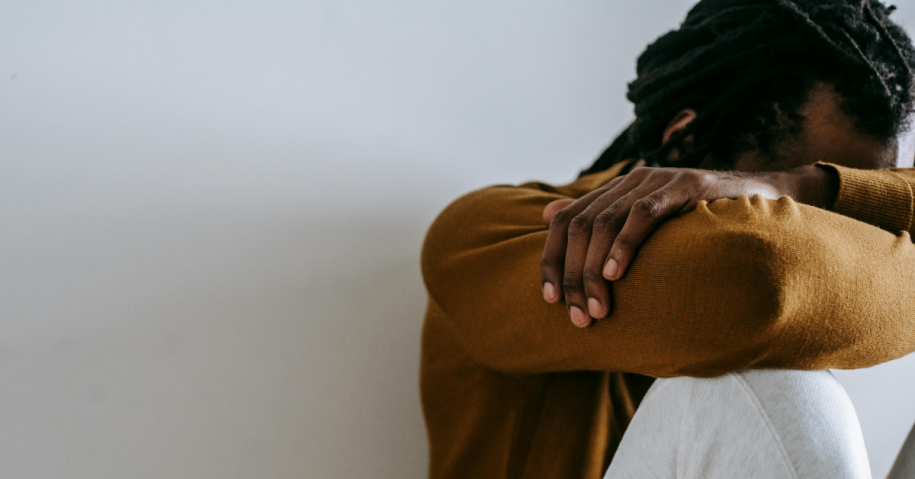Anxiety and addiction often go together, creating a cycle that’s hard to break. If you or someone you care about is struggling with both anxiety and addiction, it’s important to understand how they are linked. Getting the right dual diagnosis treatment can help.
Living with both anxiety and addiction can feel like being trapped in an unbreakable cycle. The constant worry, fear, and overwhelming emotions can make every day feel like a battle.
When anxiety takes hold, it can be tempting to turn to substances like alcohol or drugs for relief. But instead of finding lasting peace, many find themselves sinking deeper into addiction. If this sounds all too familiar, know that you’re not alone.
Understanding the connection between anxiety and addiction is the first step in breaking free from this painful cycle. The right dual diagnosis treatment can help you regain control, heal, and start living a life of recovery.
What Is Anxiety?
Anxiety is not just a moment of nervousness before a big event or a passing worry about an upcoming task. It is a persistent and overwhelming feeling of fear, worry, or unease that doesn’t easily go away.
People with anxiety may constantly feel on edge, as if something bad is about to happen, even when there’s no immediate threat. This can make daily life feel exhausting and unpredictable.
Anxiety can take many forms. Some people experience physical symptoms like rapid heartbeats, shortness of breath, dizziness, or muscle tension. Others may struggle with mental symptoms such as racing thoughts, constant worry, or a sense of impending doom. These feelings can make it hard to focus, work, or engage in everyday activities.
Whether it’s occasional or constant, the effects of anxiety can make it difficult to feel at ease or truly enjoy life.
How Anxiety Can Lead to Addiction
People with anxiety may turn to alcohol or drugs to cope. At first, these substances may help them feel calm. But the relief is only temporary. As the effects wear off, anxiety returns, often feeling worse.
This cycle continues as the person uses more substances to manage their anxiety. Over time, this leads to addiction. The body becomes dependent on the substance, and withdrawal symptoms appear when the person doesn’t use it.
Addiction Emotions: How Addiction Makes Anxiety Worse
Addiction doesn’t just affect your physical health; it also deeply impacts your emotional well-being. People struggling with addiction often experience a range of intense emotions, many of which can amplify anxiety and make it even harder to cope.
Guilt, shame, and isolation are some of the most common emotions that accompany addiction.
Guilt is a powerful emotion in addiction.
Many individuals feel guilty for their behavior, the hurt they’ve caused others, or the choices they’ve made. This guilt can weigh heavily on the mind, creating a constant sense of self-blame. The more someone uses substances to cope, the deeper the guilt can become.
Shame often goes hand-in-hand with guilt.
People with addiction may feel embarrassed or ashamed of their actions, believing they’ve let themselves and others down. This shame can lead to a sense of hopelessness and a belief that they don’t deserve help or recovery. As the shame builds, it can heighten feelings of anxiety, trapping them in a cycle of self-doubt and fear.
Isolation is another emotion that frequently arises.
Addiction can drive people to withdraw from friends, family, and social activities. The fear of judgment, the need to hide their substance use, or the feeling that no one can understand what they’re going through can leave people feeling completely alone.
This isolation can amplify both addiction and anxiety, making it even harder to break free from either. The longer someone isolates themselves, the more their anxiety can grow, feeding into the need to use substances as a coping mechanism.
The connection between addiction and anxiety creates a dangerous loop. The more anxiety someone feels, the more likely they are to turn to substances for relief. However, substances only provide temporary relief, and once the effects wear off, anxiety often comes rushing back, stronger than before.
Dual diagnosis treatment is designed to help individuals heal from both conditions simultaneously, offering a holistic approach that not only treats the symptoms but also helps to uncover and address the root causes of both addiction and anxiety.
By treating both, individuals can begin to heal emotionally, rebuild their confidence, and find healthier ways to cope with life’s challenges.
Dual Diagnosis Treatment: Treating Both Anxiety and Addiction
If you have both anxiety and addiction, you’re not alone. Dual diagnosis is the term for this. And the good news is that dual diagnosis treatment can help. Instead of treating anxiety and addiction separately, this treatment focuses on both at the same time.
Dual diagnosis treatment often combines therapies like Cognitive Behavioral Therapy (CBT), group therapy, and medication. These treatments help manage anxiety and overcome addiction. By addressing both issues at once, you can heal more fully and improve your overall health.
Anxiety Triggers and How to Manage Them
Anxiety triggers are different for everyone. Common triggers include stress, work pressure, relationship problems, or certain environments. Learning your personal triggers can help you avoid or manage them.
In treatment, you will learn how to cope with anxiety triggers without turning to substances. Techniques like mindfulness, deep breathing, and relaxation can help you manage anxiety in healthy ways.
Take the First Step Toward Recovery with Lighthouse
If you or a loved one struggles with both anxiety and addiction, get help. Recovery is possible. The right treatment can help you break the cycle. At Lighthouse Recovery Institute, we specialize in dual diagnosis treatment.
You don’t have to face anxiety and addiction alone. Let us support you every step of the way. Reach out today to learn how we can help.









